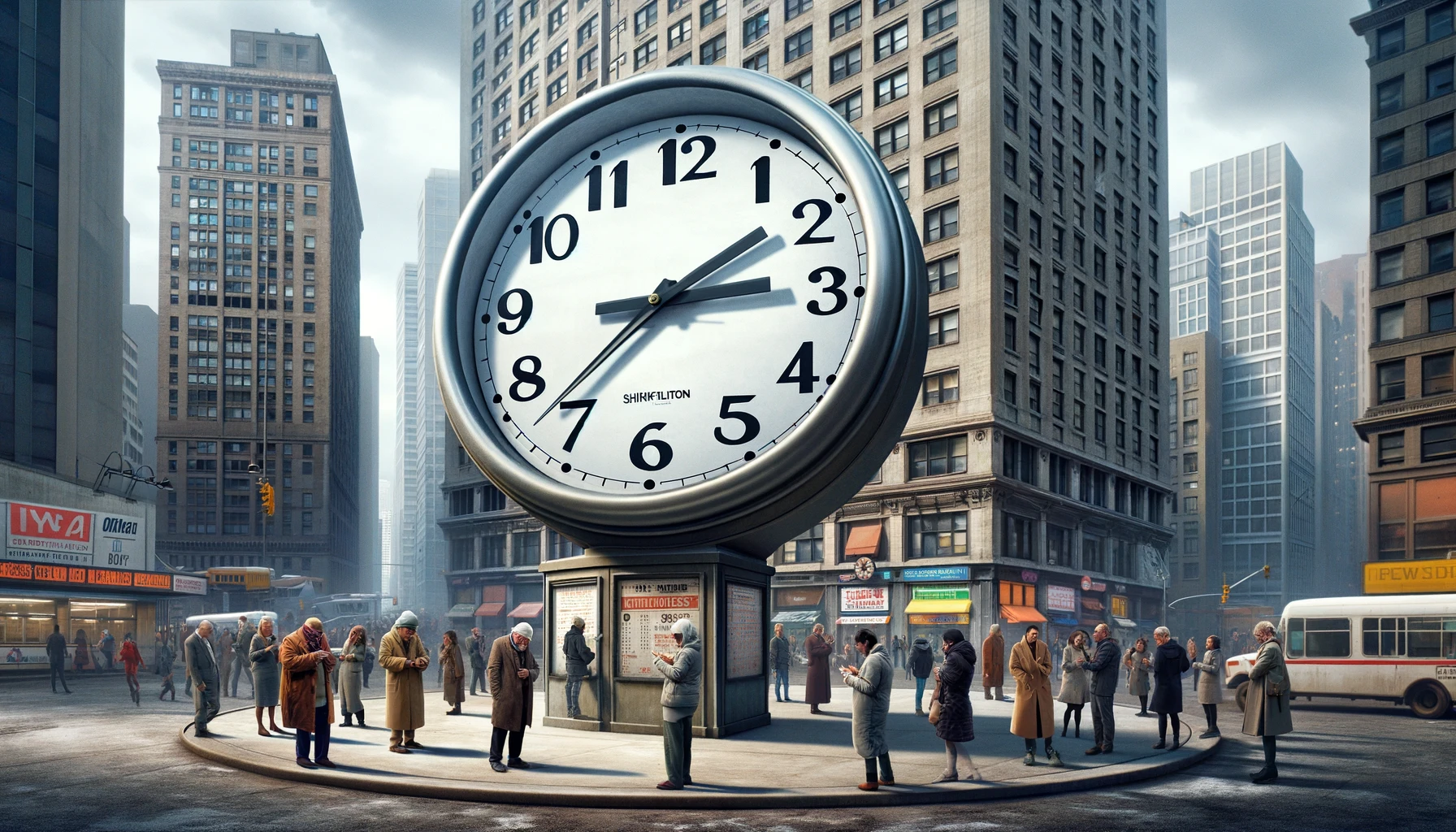Shrinkflation Hits Time Itself, as Scientists Declare There Are Now Only 23 Hours in a Day but with the Same Daily Stress
In a devastating blow to anyone already struggling with the relentless pace of modern life, top scientists have revealed that shrinkflation, the insidious practice of giving you less for your money, has now infiltrated the fabric of time itself. Days officially contain a mere 23 hours, a shocking yet unsurprising development experts attribute to rampant late-stage capitalism.
“It’s simple mathematics,” explains a weary physicist, her calculations revealing a staggering deficit in temporal resources. “The demands on our attention and productivity have increased exponentially, while the available time to meet them has been subtly shrinking. This wasn’t sustainable.”
The effects of this temporal shrinkage are being felt acutely. Commuters now experience a phenomenon dubbed “phantom traffic jams,” where they somehow lose vast amounts of time despite the journey itself being shorter. A simple trip to the grocery store now warps into an hours-long odyssey involving product comparison, nutritional label deciphering, and a soul-crushing debate over whether to splurge on the name-brand cereal.
“I swear, I blinked, and it was suddenly dinnertime,” laments one frazzled office worker. “Where did the hours go? What did I even accomplish? I feel like I’m on a treadmill set to ‘existential crisis’.”
The missing hour has thrown off the delicate balance of work and life. Companies, thrilled by this underhanded productivity boost, are already mandating even tighter deadlines. Meanwhile, the leisure industry scrambles to repackage relaxation:
- Enterprising businesses now offer “Micro-Naps” for the chronically exhausted.
- 10-minute “speed-spa” treatments promise the illusion of self-care.
- Streaming services pitch bite-sized “snackable” content to fill the ever-dwindling slivers of free time.
Worst of all, despite the truncated day, the amount of stress remains unchanged. Doctors are reporting an alarming uptick in cases of “temporal anxiety,” characterized by the overwhelming feeling that one is perpetually running out of time.
As society grapples with this new reality, a grassroots movement emerges. The “Slow Time” advocates demand a return to the days of yore, back when one could linger over a cup of coffee without the crushing guilt of a million undone tasks.
Until then, most of us are left to adapt. Expect a surge in sales of elaborate time-management systems, highly caffeinated beverages, and weighted blankets (to combat the inevitable insomnia brought on by the relentless awareness of time’s relentless theft).
